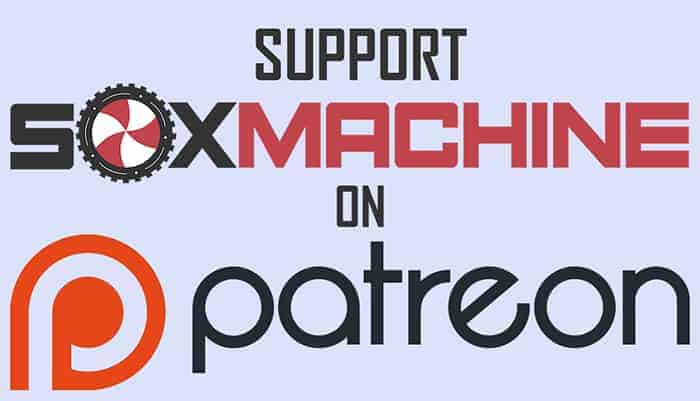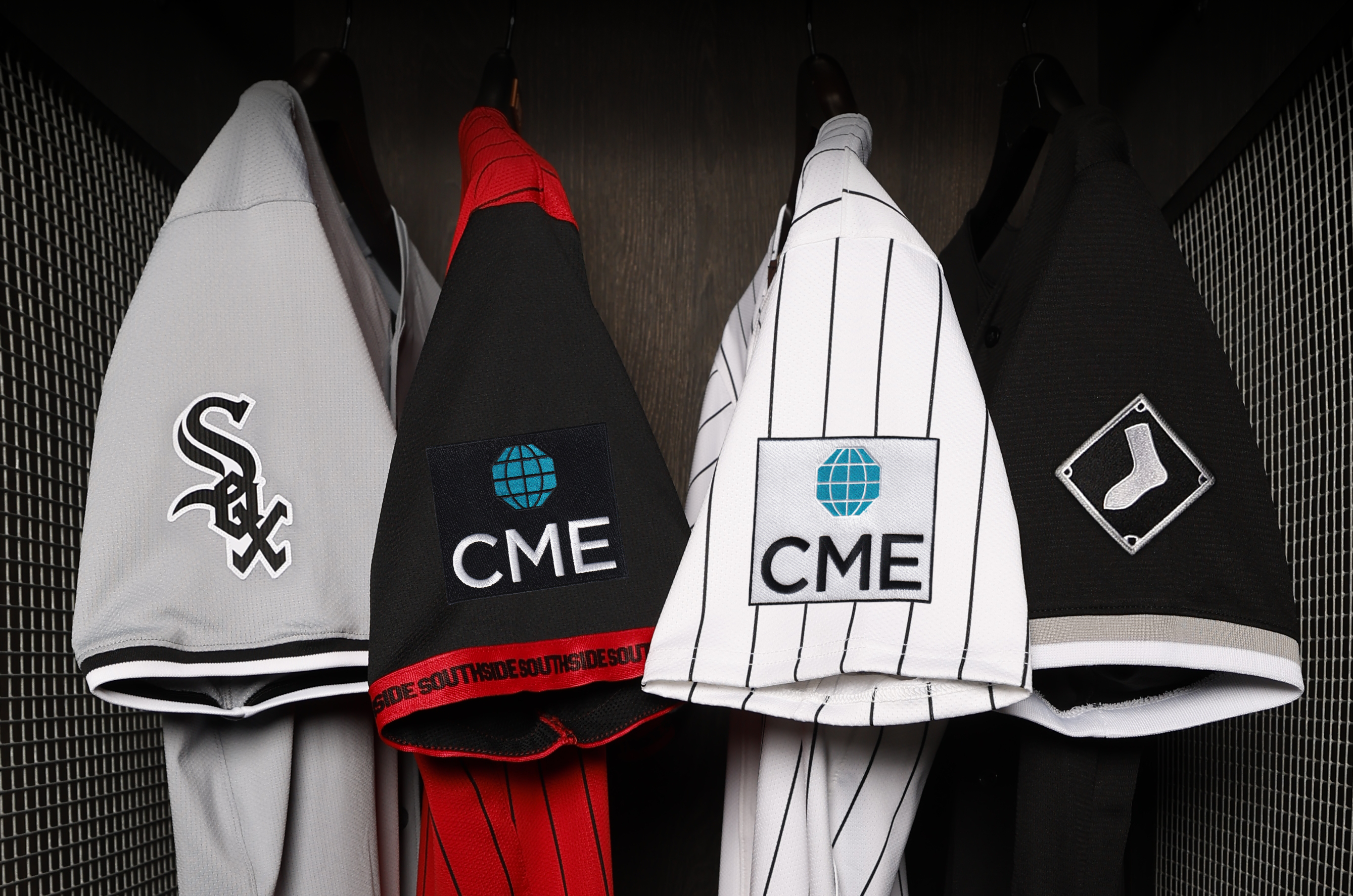The final full and proper Sox Machine Podcast of 2019 will drop next Monday as I learn what Josh saw at the Winter Meetings. For now, I took some of your questions the old-fashioned way: with text.
Doug asks:
What do you think the Red Sox want back in a trade to dump money? Who might they give up. They have a very good defensive outfield. I would rather have defense (Engel batting .275 would be great player in my mind).
It appears the "expendable" big-money contracts on the Boston payroll are:
- Mookie Betts ($27.7M proj.)
- Jackie Bradley Jr. ($11M proj.)
- David Price (three years, $96M)
- Nathan Eovaldi (three years, $51M)
(I suppose J.D. Martinez counts, too, but he considering he just opted in, he might be harder to move.)
The Red Sox shouldn't really require a significant sort of talent back unless they're offering a ton of relief. Eovaldi's contract is completely underwater, while the obligation for Price is partially submerged. If the Sox were willing to take most of the money owed, they probably wouldn't or shouldn't have to get into their top 15 of prospects. Bradley is fine, but 2 WAR players can get non-tendered when they're making eight figures, so it's hard to expect the Red Sox to demand much in return. He'd be a good candidate in a strength-for-strength deal, but the White Sox don't have much in the way of dealable depth.
I think it only gets into top-10 prospect territory if Andrew Benintendi gets roped into talks to accept most of a bad salary. Even then, Benintendi only hit 13 homers last year, and if he's somebody who peaked early, then his arbitration number could get to be a bear itself. Part of me wonders whether Fenway is the wrong park for Benintendi. I wouldn't mind the White Sox trying to see if Guaranteed Rate Field helps his cause, but I'd need to know that the White Sox could absorb a bad salary, rather than point to it as a reason to reduce real adding down the line.
Shoeless Jer asks:
Certainly hoping the White Sox continue to spend this offseason, and in a smart manner. I was wondering if you could talk about MLB team economics in general, and how the Sox may have done over the last few years in particular. It is hard to know just how much money teams make since they are privately held, and there are many variables – TV revenues, advertising, tickets/concession sales, payrolls, ballpark leases, etc. Have sox fans been complete suckers over the last decade, or has the team been just scraping by?
I imagine these rebuilding years of eight-figure payrolls have been very good for the White Sox's bottom line. Forbes said the Sox were No. 6 in terms of operating income last year, partially because they spent a relative pittance on players. Even if you take 20 percent off Forbes' operating income estimate, the Sox could probably get to a $150M payroll and still break even. Their payrolls just haven't progressed with inflation and all the leaguewide income streams, so I think that's a difficult assessment to argue.
I don't think they're a financial monster in their current iteration, but that's mostly because they've done nothing to inspire higher attendance figures or TV ratings. A better front office could probably spend its way into a higher class (the Dave Dombrowski model), but the White Sox lack the track record for either landing players or recruiting the right ones, and they also have no stomach for doubling down when their first foray goes poorly.
Under these circumstances, a rebuild and critical mass of talent makes a lot of sense. Of course, a lot of teams try to rewrite their circumstances by making change sin the front office, but the White Sox aren't one of those teams.
From bobsquad:
Say the only other bat the Sox add is a righty (Ozuna, Castellanos). Do we see Ricky do something like bat Zack Collins cleanup to compensate?
I don't think so. If the Sox wanted lineup balance uber alles, I'm guessing Yasmani Grandal occupies the role that they wanted Yonder Alonso to lock down last year. I'd think the 2-3-4-5 is pretty much set with Yoan Moncada, Jose Abreu, Yasmani Grandal and Eloy Jiménez/Nicholas Castellanos/Marcell Ozuna. If the Sox got a lefty like Joc Pederson to fill the role Castellanos and Ozuna occupy in this scenario, then he and Grandal would probably be in the fourth/sixth spots, whichever order seems better.
Asinwreck asks:
Does the long-overdue election of Marvin Miller to the Hall of Fame affect the union's rhetoric and strategy in the CBA negotiations?
Not automatically. As we saw with Harold Baines last year, a favorable electorate has a lot to do with it, and Miller had probably the best jury he could hope for. Jay Jaffe broke it down:
All six Hall of Fame players on the committee (George Brett, Rod Carew, Dennis Eckersley, Eddie Murray, Ozzie Smith, and Robin Yount) were among those who participated in the seven-week 1981 players’ strike led by Miller, and five of them (all but Brett) went through free agency at least once. Additionally, only one owner (David Glass) was among the six executives on the committee, but he didn’t buy the Royals until 1993, well after Miller’s tenure as executive director. None of the five other execs (former GMs Sandy Alderson, Dave Dombrowski, Walt Jocketty, Doug Melvin, and Terry Ryan) were in upper management during Miller’s run nor were they legacies of labor skirmishes like so many Gileses and MacPhails; Reinsdorf, who was pivotal in both the game’s late-1980s collusion scandal and the 1994 players’ strike, as well as on last year’s Today’s Game Era Committee, was not involved in this vote. Additionally, Brett, Carew, Eckersley, Yount, Alderson, Glass, and media member Steve Hirdt of the Elias Sports Bureau were on the aforementioned 2018 Modern Baseball panel, where Simmons fell just short.
Media members Bill Center, Jack O’Connell, and Tracy Ringolsby rounded out the panel. Hirdt, O’Connell, and Ringolsby also served on the 11-member Historical Overview Committee that built this ballot.
So I don't think this marks some kind of big swing in union support in and of itself.
That said, Miller didn't want to get in the Hall of Fame posthumously, and Joe Posnanski thinks it wasn't just frustration talking. It would have been dangerous to put Miller in front of a microphone during a signature event of baseball's calendar, with all the power brokers watching. It's theoretically safer now.
Assuming somebody accepts the honor on his behalf, it's not out of the question that he or she could use the floor to try to plant a flag for labor. I wouldn't count on it because it's a lot to ask, but it's probably the speech I'm most looking forward to watching, just to see if somebody comes close to conjuring his spirit.






